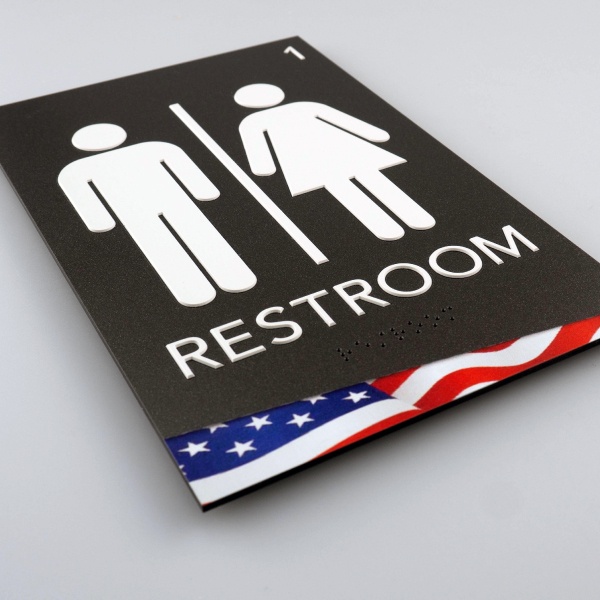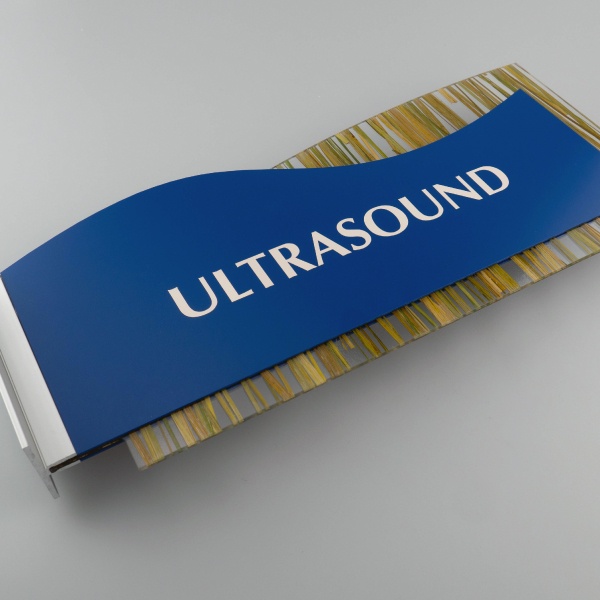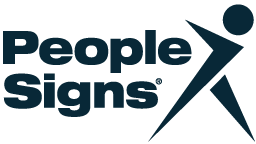Wayfinding & ADA SIGNAGE
Wayfinding
& ADA SIGNAGE
& ADA SIGNAGE
Helping navigate a space
HELPING NAVIGATE A SPACE
Wayfinding, as the name suggests, is the strategy that people use to navigate a space or orient themselves within a physical environment. It is a series of information systems that guide people and enhance their understanding and experience of the space. Wayfinding is critical in creating an effortless and stress-free path for pedestrians in the built environment such as healthcare and educational campuses, transportation facilities, and corporations.
Types of Wayfinding Signs
Identification
Identification
Identification signs are clear and simple indications that you have arrived at a location. They indicate the name or number of a room or the entrance of a department or office.
Directional
Directional
Directional signs are the key to preventing unnecessary confusion while visitors navigate your building. These types of wayfinding signs should be placed at any junction or hallway intersection where a person would seek instruction on how to get to their destination.
Regulatory
Regulatory
Regulatory signs are typically the most important signs of a wayfinding system. These signs should be clearly visible so that any rules, laws or safety warnings aren’t overlooked. Regulatory signs are the foundation for creating a safe environment; ensuring there is no confusion over what the rules are and that visitors aren’t subjected to danger.
Informational
Informational
Informational signs are exactly what their name indicates. These signs provide the visitor with details such as hours of operation, or if there is free wifi. Informational signs are less about moving toward a destination and more about presenting people with knowledge once they are there.
Development Process
In each project, there are unique elements to the design plan that require a custom approach. However, while each sign project has specific requirements, the typical People Signs approach to a facility-wide project includes the following.
DEVELOPMENT PROCESS
In each project, there are unique elements to the design plan that require a custom approach. However, while each sign project has specific requirements, the typical People Signs approach to a facility-wide project includes the following.
DEVELOPMENT PROCESS
In each project, there are unique elements to the design plan that require a custom approach. However, while each sign project has specific requirements, the typical People Signs approach to a facility-wide project includes the following.
STANDARD SIGN SERIES
STANDARD SIGN SERIES
Take the guesswork out by choosing a sign series that provides a simple combination of shapes, colors, and architectural styles. Check out our ever-changing selection of ADA compliant signs offering options that meet your needs using industry standard materials and feature changeable inserts.
Core Building &
Regulatory Signs
Regulatory Signs
Core Building &
Regulatory Signs
Regulatory Signs
Interior core building and regulatory signs are the signs necessary for a certificate of occupancy upon final building inspections. Think of these signs as those related to ADA, fire, life and safety. Not all signage will be applicable on all projects. The types of signs required may include accessibility, electrical rooms, elevator emergency signs, exits, fire protection equipment, floor identification, etc.
CORE BUILDING & REGULATORY SIGNS
Interior core building and regulatory signs are the signs necessary for a certificate of occupancy upon final building inspections. Think of these signs as those related to ADA, fire, life and safety. Not all signage will be applicable on all projects. The types of signs required may include accessibility, electrical rooms, elevator emergency signs, exits, fire protection equipment, floor identification, etc.
Custom Product
CUSTOM PRODUCT
Brand identity is often the focal point of a signage program and can be carried out across all signs from entry to exit. People Signs will work with you to make sure your signage is both brand authentic and blends effectively with your building’s décor. Our team will work with you to customize your signage as needed.






